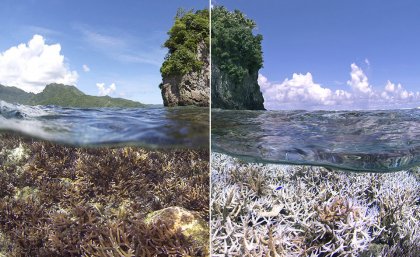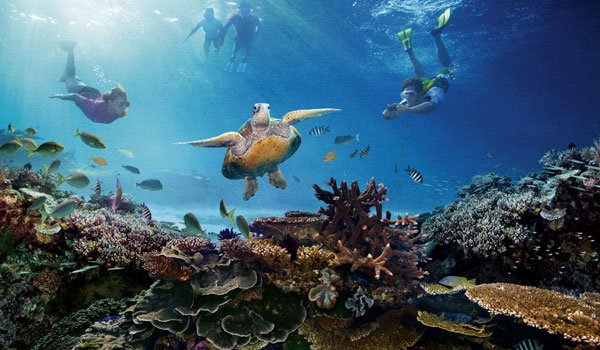Last week, the Great Barrier Reef was declared dead in an obituary and this had led some outlets to claim that scientists have declared the reef officially dead, sparking outrage and despair on social media.
The obituary, written for Outside Magazine by Rowan Jacobsen, says, “The Great Barrier Reef of Australia passed away in 2016 after a long illness,” noting that the age of the spectacle was 25 million years.
The complete obituary can be read here.
However, scientists have admitted that the Unesco World Heritage site has been severely damaged due to the bleaching that took place recently.

CAPTION : Coral bleaching. (Pic courtesy : uq.edu.au)
Climate change
Speaking to 'Sri Lanka Mirror', Eranga M. Wimalasiri, who reads for a doctorate for a doctorate from Nottingham University (Malaysia) says that the climate change fuelled by human activities is the main reason for bleaching and the subsequent death of corals.
Increase in the acidity levels in seawater, El Nino conditions in the sea also contribute to the destruction of coral, he adds.
He said that regardless of the misreporting, it was important that the issue had secured global wide public attention.

CAPTION : Eranga M. Wimalasiri
The Great Barrier Reef
The Great Barrier Reef is the world's largest coral reef system composed of over 2,900 individual reefs and 900 islands stretching for over 2,300 kilometres.
Located in the Coral Sea, off the coast of Queensland, Australia, the Great Barrier Reef can be seen from outer space and is the world's biggest single structure made by living organisms.
It supports a wide diversity of life and was selected as a UNESCO World Heritage Site in 1981.
- Shani -






